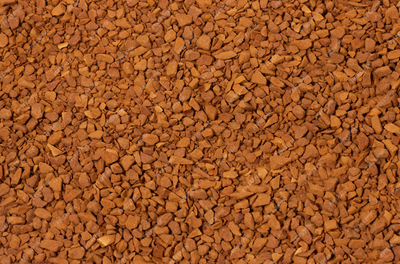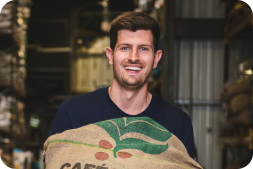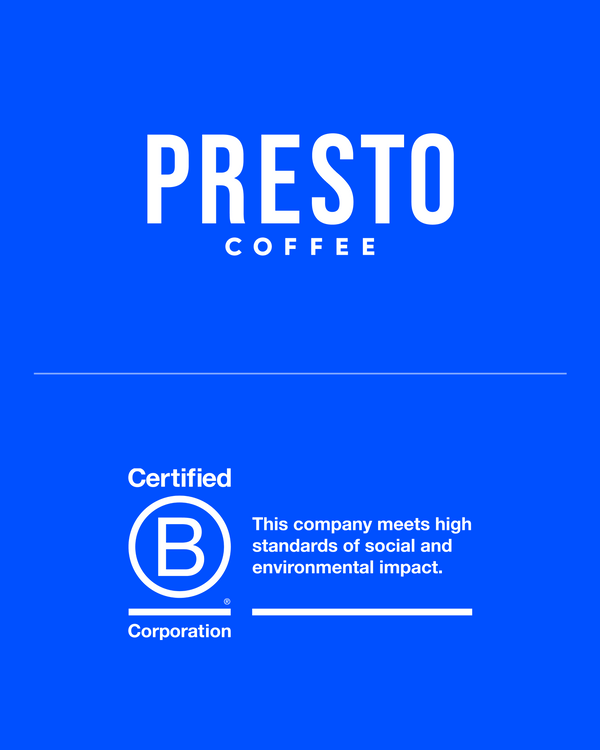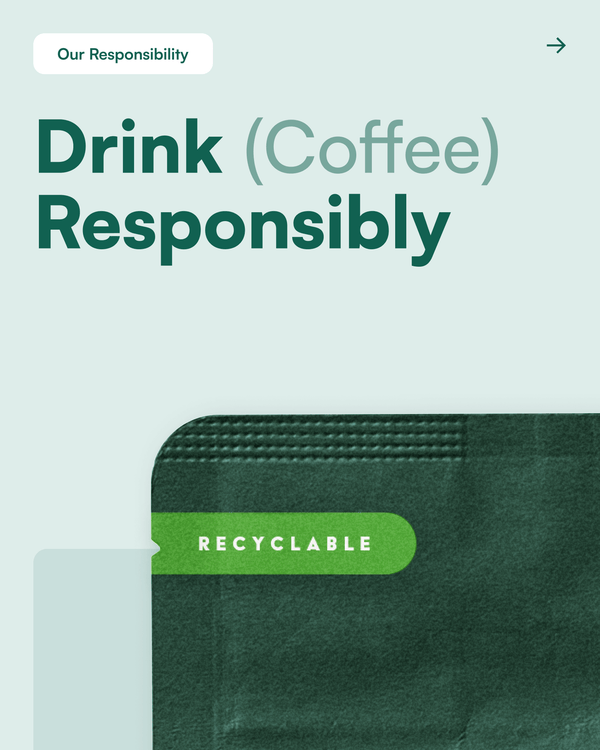The importance of making sure that what we consume is both sustainable and eco-friendly is more important today than ever before. Knowing how to find these products and what to look out for on the packaging is no easy thing, however!
This is why we are wanting to highlight the Rainforest Alliance, the certifications they provide, and what their little frog badge actually means for the coffee you drink.
What they do is something that is very close to our hearts, and we are incredibly proud to source our coffee bags from Rainforest Alliance farms.
Let’s find out more…
What is the Rainforest Alliance Certification Program?
Sustainability is the heart of everything the Rainforest Alliance does, and their certification is centred on three key pillars: social, economic, and environmental.
Independent auditors are used in the evaluation of farmers all over the world to make sure they meet or exceed the requirements for these three pillars. Why is this important? Using independent evaluators adds to the integrity of the certification.
What all of this means is that when you see products or ingredients that have the Rainforest Alliance certification (that little frog!) you can be confident that everything has been produced with a focus on not only quality but ethically and sustainability too.
Their standards focus on four primary themes:
- Forests – The protection of forests is essential to our survival. The Rainforest Alliance training and certification promotes the protection of standing forests and preventing the destruction of forests for additional cropland.
- Climate – One of our biggest weapons against climate change are our world's forests. The Rainforest Alliance’s certification programs encourage responsible land management to increase carbon storage as well as prevent deforestation.
- Their focus is also on helping and training farmers to deal with the extreme weather that come with climate change and to help them build a resilient farm that can stand against droughts, land erosion, and flooding.
- Human Rights – Human rights abuse has been prevalent in agriculture all over the world for many years. The certification program strives to provide robust strategies for eradicating child labour, poor working conditions, low wages, gender inequality, and much more.
- Independent studies have shown that workers on certified farms have much better working conditions.
- Livelihoods – Economic stability for rural communities and the health of our ecosystem are mutually dependent. This is why the Rainforest Alliance Certification Program also focuses on the farmer's livelihoods.
What sustainability standards do they represent?
All rainforest-certified products and businesses get to use their Frog logo or stamp of certification. There are a few different products and industries that you will see this certification, and it is worth looking out for.
- Agricultural Products – If you see the certification frog on agricultural products means that the food has been grown on Rainforest Alliance certified farms, all of whom meet the Rainforest Alliance Sustainable Agriculture Standard. You can also be confident that the farms are run ethically and sustainably thanks to the additional UTZ Code of Conduct Certification.
- Forestry Products – On products like paper and cardboard the frog means that the producers have achieved certification from the standard of the Forest Stewardship Council. This again ensures the sustainability of the product and the environmental impact of both harvesting and manufacture.
- Tourism Businesses – if you see the Rainforest Alliance’s frog used by tourism businesses like tour operators and hotels then you can be confident they have achieved the certification Sustainable Tourism Standard by Preferred by Nature.
How this is reflected in the coffee we supply?
There are a huge number of challenges to coffee growers around the world today, and the Rainforest Alliance is working hard to help mitigate these challenges, helping growers prepare for the future.
Climate change, rising temperatures, plant diseases, and unstable prices are just a few of the issues that coffee farmers face.
Most of the 12.5 million coffee farms around the world are run by small-scale farmers.
The Rainforest Alliance now works with more than 400,000 certified coffee producers in East Africa, Asia, and Latin America. These farms alone cover approximately 1 million hectares of land.
Human Rights
Gender inequality, child labour, forced labour, and discrimination are still a big issues in agriculture. The Rainforest Alliance is doing all it can to help eradicate this from coffee farms around the world.
Through their support and guidance, farmers are given the tools to understand and prevent these inequalities and to set up an internal committee designed to prevent child labour and abuse.
The success of these programs and certifications is beginning to be seen in farms around the world.
Climate
Coffee cultivation is very dependent on the climate and the weather, and the changes that are happening can and do have devastating effects on coffee farmers.
Coffee can only grow between certain temperatures, and with the rising global temperature (which is more acute in some places) many farmers have been forced to move their farms to higher elevations.
Added to this is the fact that rising temperatures are also causing an increase in coffee rust, a fungus that grows quickly and can destroy an entire farm.
The Rainforest Alliance works this the farmers to create an action plan based on their current climate and the climate vulnerabilities for the coming years. These plans may include planning shader trees to help protect the coffee, applying just the right amount of fertiliser and pesticides at just the right time of year, or planting cover crops to help soil absorption and humidity retention.
Livelihoods
A focus on productivity and efficiency with an aim of producing more and more consistently is the key to helping and improving farmer's livelihoods. These methods have been paying off and three independent studies over the last five years have shown that certified farms are generating 179% more income than non-certified farms.
Forest and Biodiversity
For the last 30 years, the Rainforest Alliance has worked tirelessly to protect the world's forests. Preventing deforestation, protecting forest ecosystems, and promoting biodiversity on farms has been a top priority.
A great example is a 1000-hectare farm in Costa Rica, Aquiares Estate. Over the 17 years, they have been working with the Rainforest Alliance they have planted 50,000 trees, brought back140 bird species and 76 different native tree species. Incredible!
Final Thoughts
We are incredibly proud to supply rainforest alliance certified coffee to our customers. What they do, and the difference they make is so important and matches the core ethics of Presto Coffee.
Together we can make a difference.






 Log in
Log in

